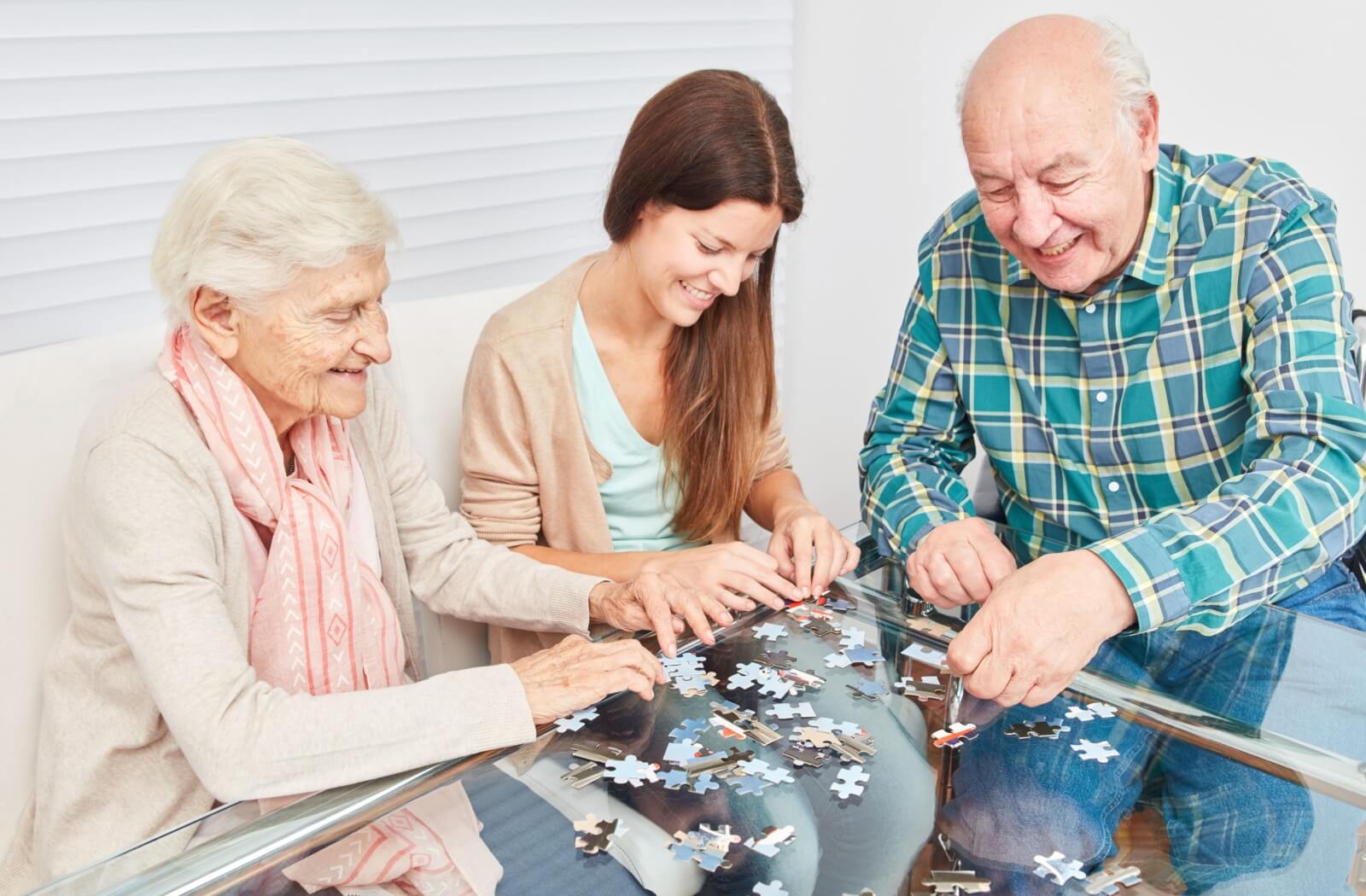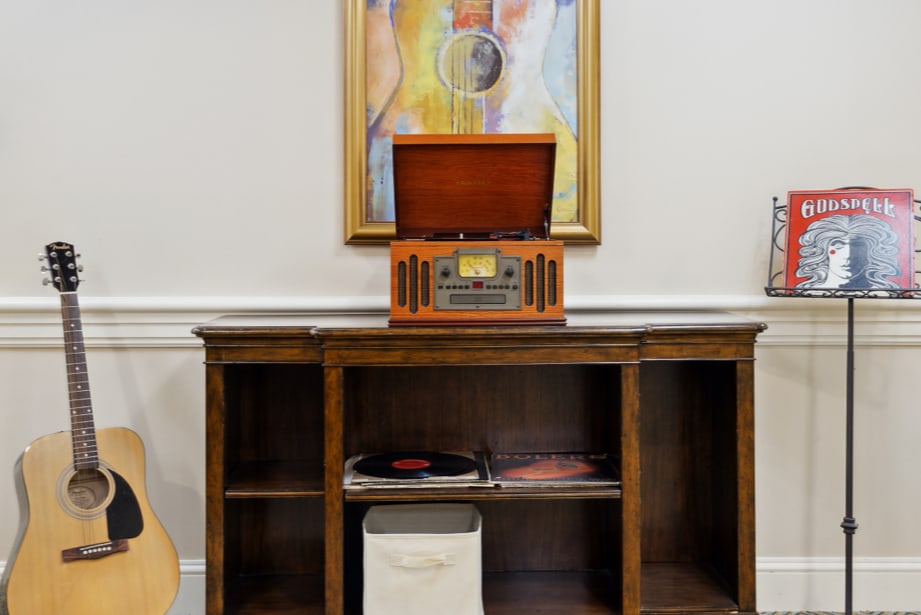Caring for your loved one includes recognizing that professional help and assistance may be needed to continue providing a high quality of life.
In the early stages of cognitive decline, many older adults can still live independently or with the help of a primary caregiver. Due to the progressive nature of dementia, there may come a day when a memory care community may be the best living environment for your loved one.
Signals to look out for that may suggest that it’s time to consider memory care for your loved one include neglecting personal care, social isolation, safety concerns, and caregiver burnout. At The Grande at Creve Coeur, we would like to share guidance on symptoms to look out for to help decide when memory care living will benefit your loved one.
What Is Memory Care?
Memory care is designed especially for individuals with cognitive impairments such as dementia. This includes establishing an environment with safety measures, specialized staff, and cognitive therapies available to residents.
One of the great benefits of memory care is knowing that supervised professional care is available to your loved one 24/7. Memory care is designed for residents to achieve a balanced and comfortable quality of life in a welcoming atmosphere. Due to the progressive nature of dementia, it’s important to recognize that what works well today may not work well tomorrow. Therefore, we develop a lifestyle plan based on your loved one’s needs.
Signs That It May Be Time for Memory Care
Neglecting Personal Care
If you notice your loved one has unintentionally started neglecting their personal care through lack of hygiene, housekeeping, meals, and medication, it may be time to consider memory care.
Ultimately, they may no longer be able to take good care of themselves, and living without an active caregiver may be unsafe.
Safety Concerns
Individuals with dementia can unknowingly become a danger to themselves and those around them. For example, they may accidentally leave appliances such as irons, hairdryers, and kitchen appliances plugged in. They may forget to turn their stove or oven off after use. Or they may be unable to care for their pets as they once did.
Perhaps they forget to take their medication, or they unintentionally take too much. This can be a danger to their overall health. Another sign to watch for is if your loved one has bruises they cannot explain. Signs of injury should be taken seriously.
It’s common for individuals with dementia to wander and get lost, which may potentially put them in an unsafe situation. In advanced stages, they may not remember who they are entirely. Being uncertain of your loved ones’ whereabouts is a deeply concerning experience.
Becoming Less Social
An individual’s well-being requires engaging in hobbies, activities, and social interaction to keep emotionally stimulated. With dementia, your loved one may gradually stop participating in the hobbies and activities they once enjoyed. This can happen when they start to find certain tasks more challenging.
Your loved one may begin to feel overwhelmed with large social gatherings as the stimulation may create distress. They may withdraw from conversation altogether due to difficulty expressing themselves.
Memory care can give residents a sense of community, allowing them to engage in group activities and hobbies in a low-stress environment. Social interaction may also help to slow the progression of dementia.
Caregiver Burnout
As rewarding and fulfilling as being a primary caregiver is to your loved one, recognize the challenges with this responsibility. Caregiver burnout is a common and serious concern. Stress can negatively impact your emotional and physical well-being. Additionally, burnout can lead to a decline in the care and attention you can provide to your loved one.
Due to the progressive nature of dementia, there may come a time when you may not be able to provide the environment and space that your loved one needs to have a good quality of life. Memory care can offer a safe, social, and welcoming community with around-the-clock care for your loved one.
Here to Support Your Loved One with Memory Care
If your loved one has dementia or a cognitive condition, it may be helpful to consider memory care at some point to help make sure that the emotional and physical needs of your loved one are met.
If your loved one is showing signs that they may benefit from memory care assistance, we can help you explore options. Contact us to learn about our memory care community.









